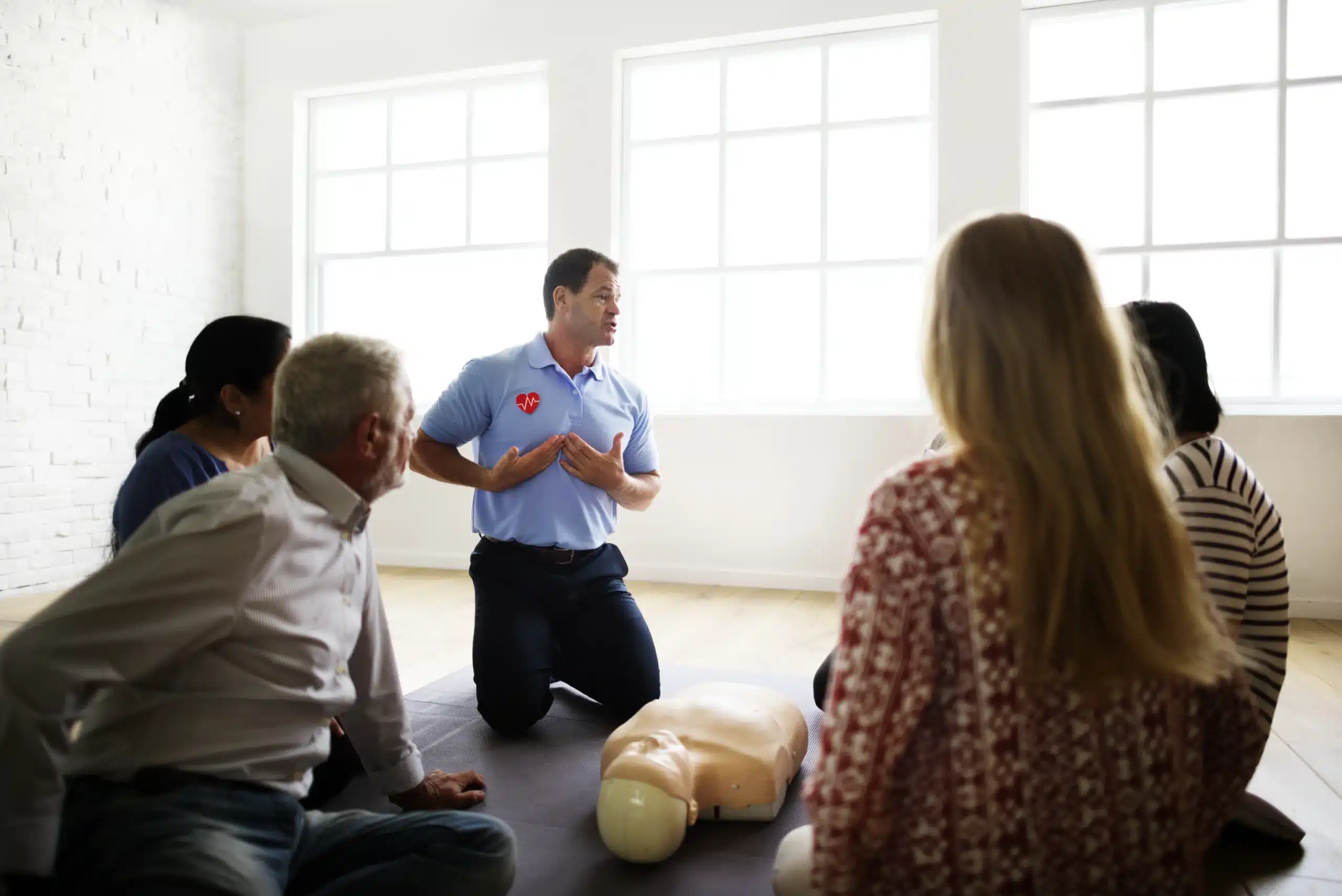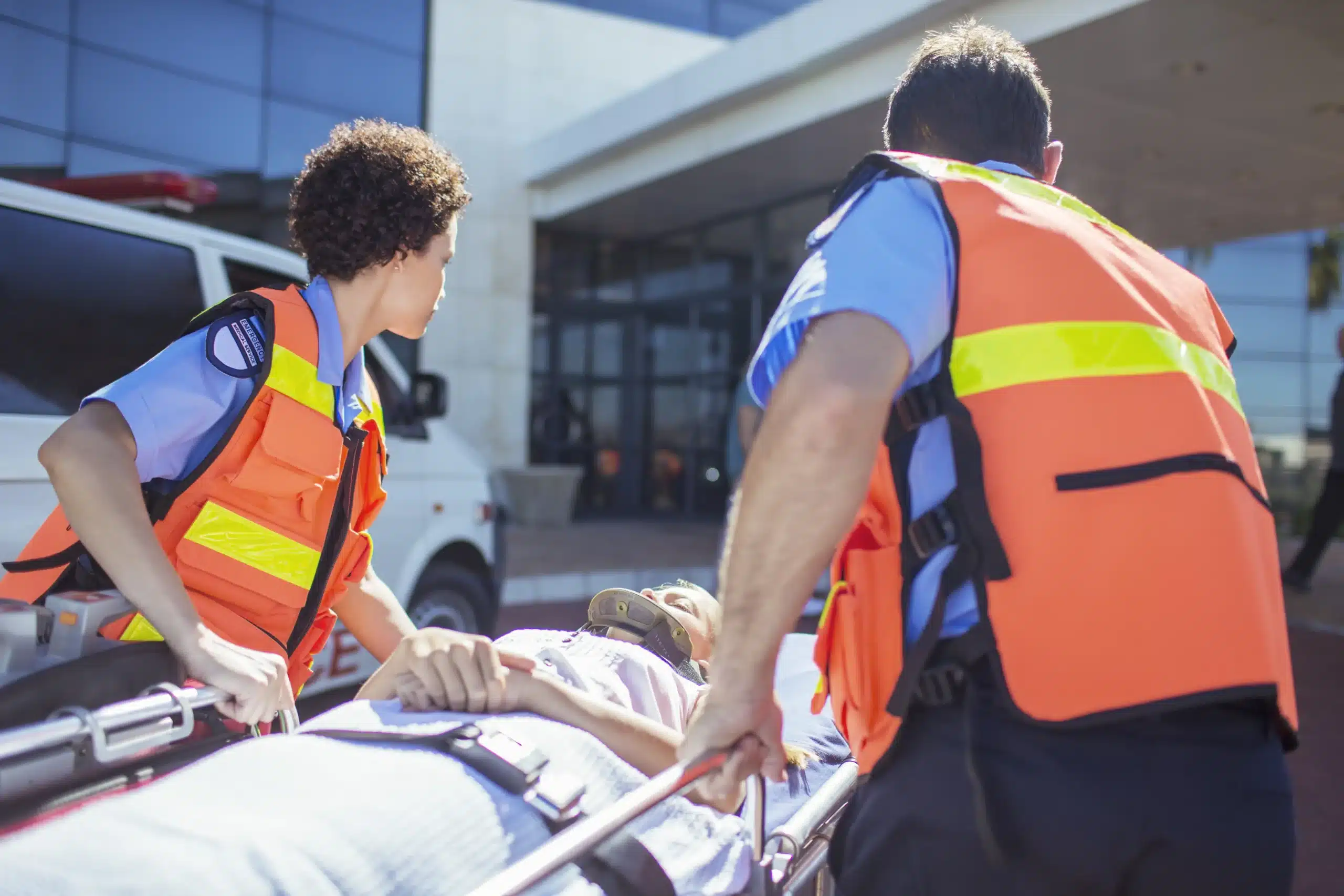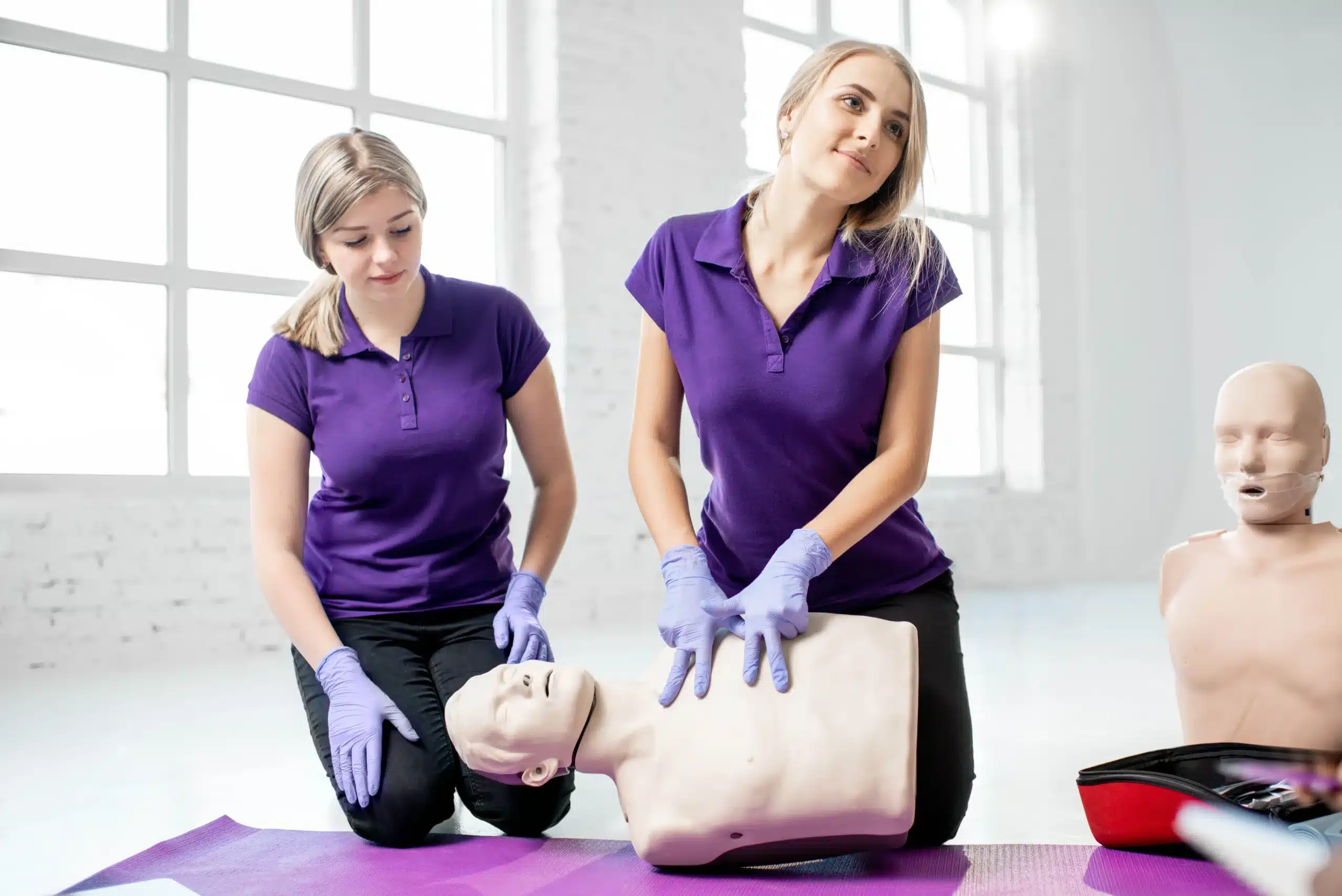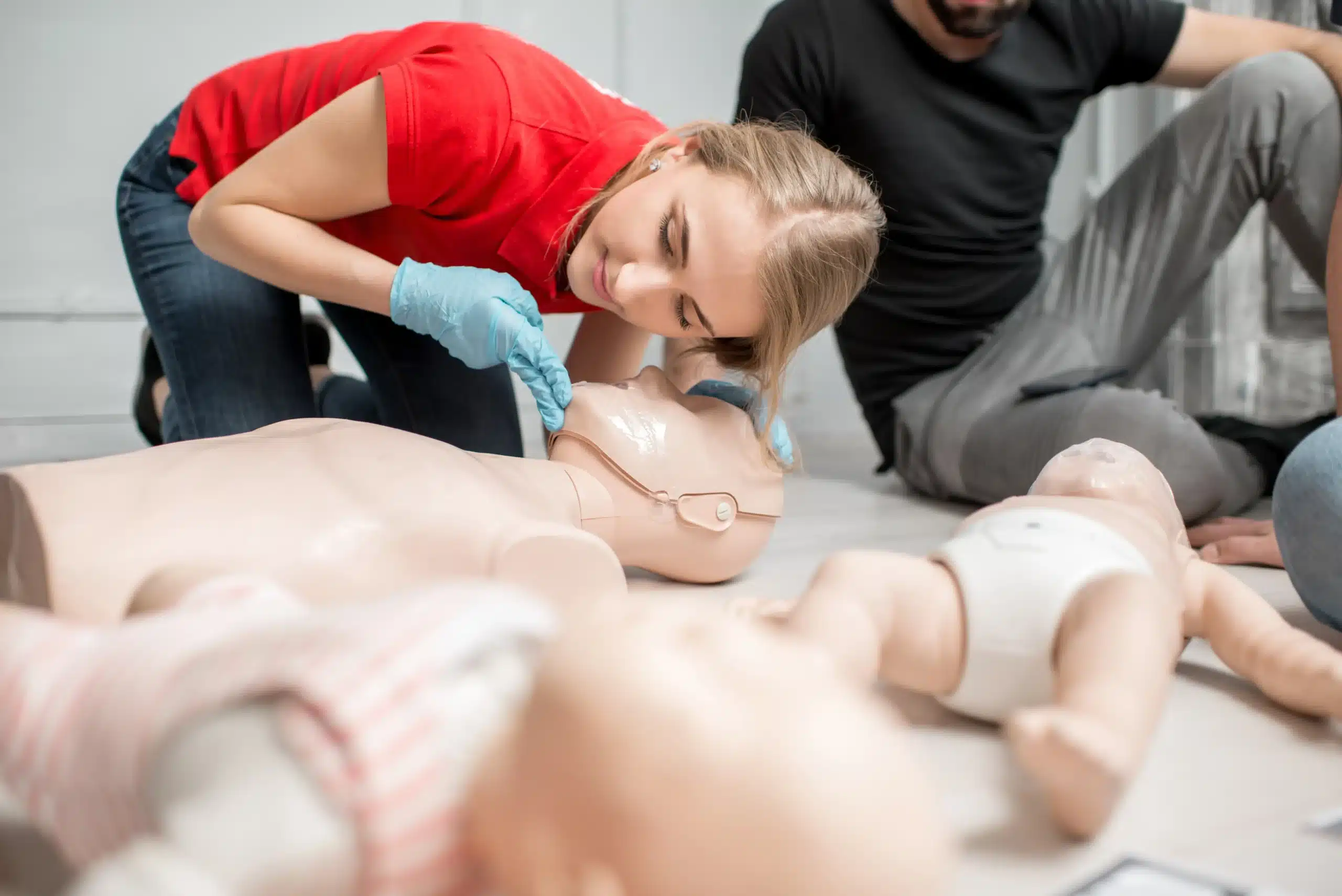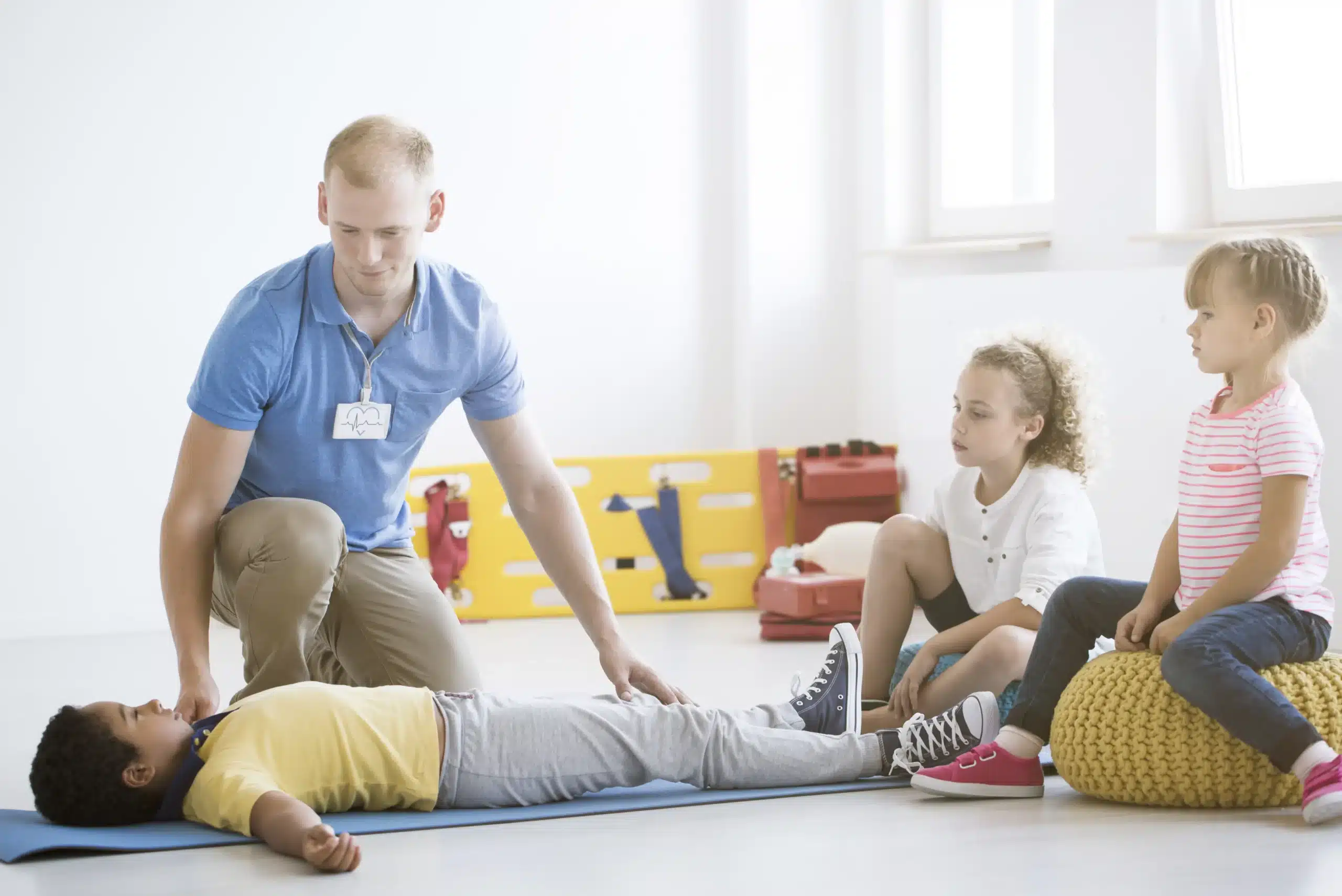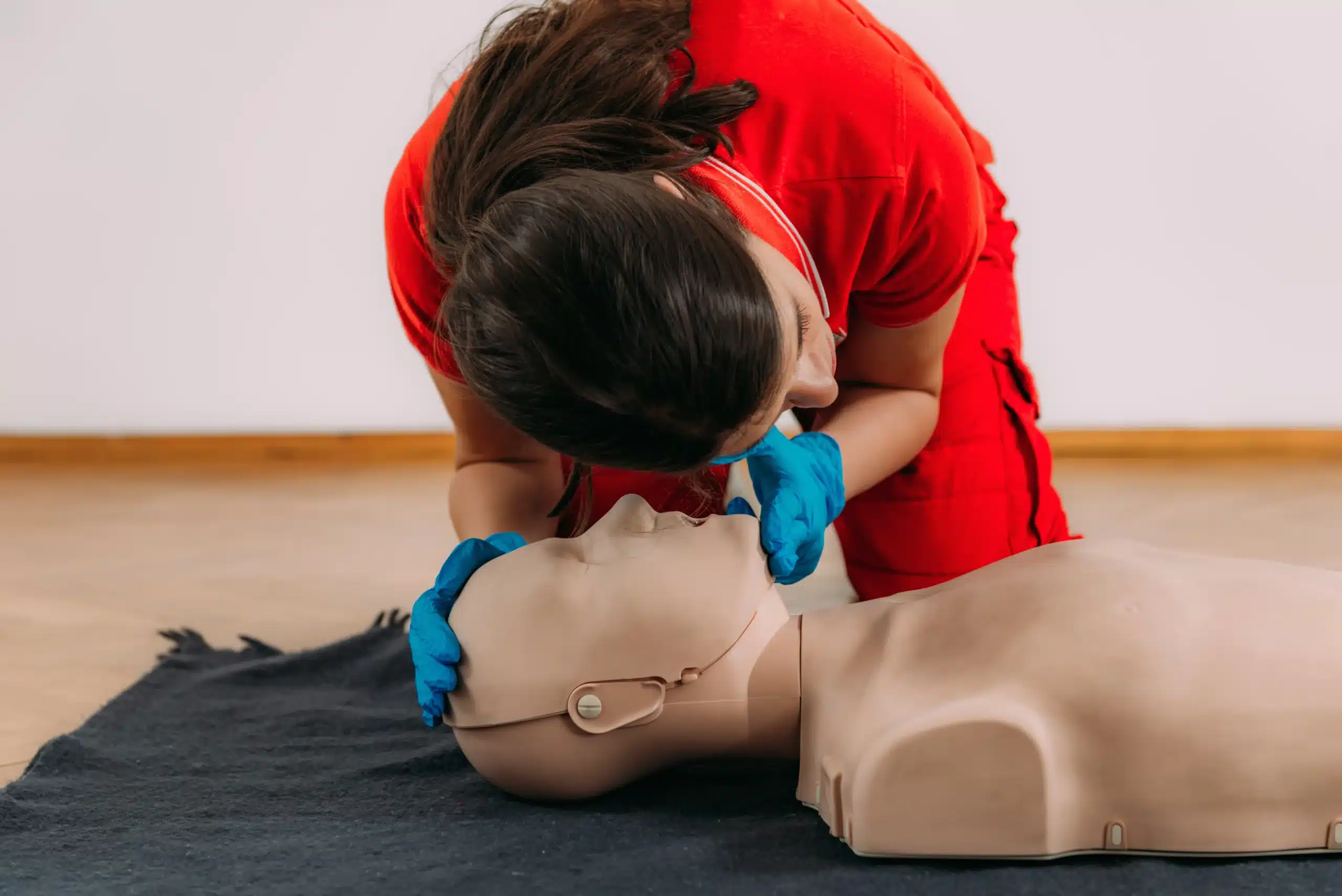Emergencies happen, and knowing CPR can transform you from a bystander into a lifesaver. If you’re in Stockton and looking to get CPR certified, this comprehensive guide is your starting point. We’ll explore the different CPR certification courses in Stockton, including BLS, ACLS, and PALS, and help you choose the right one for your needs. We’ll also cover where to find training, what happens during a typical CPR course, and how much it costs. Plus, we’ll address common misconceptions about CPR and explain how maintaining your certification ensures you’re always ready to respond effectively. Let’s equip you with the skills and confidence to act when it matters most.
Key Takeaways
- CPR certification empowers you to save lives: Whether you’re a healthcare professional, a childcare provider, or simply someone who wants to be prepared, CPR training equips you with essential skills to respond effectively in emergencies. Find a course that suits your individual needs and offers hands-on practice.
- Stockton offers a variety of CPR courses: Explore options ranging from basic CPR and first aid to advanced certifications like BLS, ACLS, and PALS. Consider factors such as cost, schedule, and preferred learning style when selecting a course. Safety Training Seminars offers a low-price guarantee for courses in Stockton, Tracy, and Lodi.
- Stay current with your CPR skills: CPR guidelines and techniques evolve, so renew your certification every two years to maintain your skills and knowledge. Regularly review CPR procedures and seek continuing education opportunities to ensure you’re always ready to assist in critical situations.
What is CPR Certification?
CPR certification formally recognizes that you’ve completed training in cardiopulmonary resuscitation (CPR) techniques. This training gives you the skills to perform CPR effectively in emergencies, potentially saving lives. While you don’t need to be certified to perform CPR, it verifies you’re prepared and understand the latest guidelines. It shows you know how to respond.
The American Heart Association (AHA) emphasizes that CPR is a life-saving technique usable by and on both adults and children, without needing extensive medical training. This makes CPR training accessible and a valuable skill for anyone. CPR certification typically lasts for two years, after which renewal keeps you updated on the latest practices. Most courses include a final exam, and a passing grade is usually required for certification. CPR Certification Dallas notes that classes often have a final exam (70% to pass), and you’ll receive your card soon after. CPR certification not only provides essential life-saving skills but also bridges the gap between knowing and doing. It’s important training for everyone.
CPR Certification Courses in Stockton
Finding the right CPR certification course can feel overwhelming, but it doesn’t have to be. Here in Stockton, we offer a range of options to suit different needs, from basic CPR to advanced life support training. Let’s break down the most common types of CPR certification courses available:
Basic CPR/AED
Basic CPR/AED certification is a great starting point for anyone looking to learn the fundamentals of CPR and how to use an automated external defibrillator (AED). This course covers essential life-saving skills, including chest compressions, rescue breaths, and recognizing the signs of a cardiac arrest. It’s perfect for community members, teachers, coaches, parents, or anyone who wants to be prepared for an emergency. Learn more about CPR/AED certification on our website. Basic CPR and first aid courses typically range from $40 to $60. Check our low price guarantee for the best value.
BLS (Basic Life Support)
BLS certification is designed for healthcare providers and other professionals who need a more comprehensive understanding of CPR. This course builds upon the basics, covering advanced airway management techniques, team dynamics during resuscitation, and high-quality CPR skills. Safety Training Seminars offers American Heart Association BLS certification, ensuring you receive training that meets the highest standards. We offer daily BLS classes to accommodate your schedule.
ACLS (Advanced Cardiovascular Life Support)
ACLS certification is for healthcare professionals who manage cardiopulmonary arrest or other cardiovascular emergencies. This advanced course covers a wide range of topics, including effective team communication, recognizing and treating cardiac rhythms, and post-resuscitation care. Our ACLS course is American Heart Association certified and uses the RQI (Resuscitation Quality Improvement) program—a modern and efficient way to receive your official certification card.
PALS (Pediatric Advanced Life Support)
PALS certification focuses on the specialized needs of infants and children during a medical emergency. This course equips healthcare providers with the knowledge and skills to effectively manage respiratory emergencies, cardiac arrest, and other pediatric life-threatening situations. As a woman-owned AHA Training Center, Safety Training Seminars offers high-quality American Heart Association PALS courses in Stockton.
Where to Get CPR Certified in Stockton
Finding the right CPR certification course is crucial, so let’s look at some options in Stockton. I’ve included a range of providers to give you a solid starting point for your search.
Safety Training Seminars
If you need comprehensive CPR and first-aid training in Stockton, check out Safety Training Seminars. They’re a woman-owned American Heart Association Training Center offering various courses, including BLS, ACLS, PALS, CPR, and First Aid. They’re known for excellent customer service and competitive pricing, with classes offered seven days a week to accommodate busy schedules. Conveniently located, they serve Stockton, Tracy, and Lodi. Learn more about their BLS course here, ACLS here, and PALS here. They also offer the EMSA Child Care Health & Safety course, which you can explore here. For those concerned about cost, Safety Training Seminars offers a low-price guarantee.
American Red Cross
The American Red Cross is a trusted resource for emergency preparedness and offers CPR classes and certification in Stockton. Their courses equip you with essential lifesaving skills, and they have a long-standing reputation for quality training.
American Heart Association
While the American Heart Association doesn’t directly teach courses, they establish the standards for CPR training. Many organizations, including Safety Training Seminars, provide AHA-accredited courses, ensuring your training meets nationally recognized guidelines. This is an excellent choice if you need certification aligned with industry best practices. You can explore their various CPR class options in more detail on their blog.
Professional CPR
Professional CPR offers CPR, First Aid, BLS, and AED training in Stockton. With over two decades of experience, they’re committed to providing effective and engaging training.
Local Hospitals and Medical Centers
Hospitals and medical centers in Stockton frequently offer RQI (Resuscitation Quality Improvement) courses. These are especially helpful for healthcare providers and students looking to refine their resuscitation skills. This guide to RQI certification in Stockton can help you determine if RQI is the right path for you.
How Much Does CPR Certification Cost?
Knowing the price range for CPR certification helps you budget and find the best value. Several factors influence the final cost, so let’s break them down.
Factors Affecting Course Prices
CPR certification costs in Stockton vary based on a few key things. The type of course matters. Basic CPR and first aid certification will typically be less expensive than more advanced certifications like Basic Life Support (BLS) for healthcare providers. The training provider also plays a role, with different organizations setting their own pricing. Finally, look at what’s included. Some courses bundle CPR with first aid or AED training, which affects the overall cost. For the most affordable options in San Joaquin County, see our Low Price Guarantee.
Average Price Ranges
Generally, you can expect to find basic CPR and first aid courses in Stockton between $40 and $60. BLS certification for healthcare providers usually falls in the $60 to $80 range. These are just averages, but they give you a good starting point for comparison. For specific pricing on our courses, visit our website. We offer American Heart Association BLS, ACLS, and PALS courses.
Discounts and Promotions
Many CPR training providers offer discounts and promotions, so it’s always worth asking! Safety Training Seminars is known for its competitive pricing. Check our website or give us a call to discuss current deals. You might be surprised at how affordable quality training can be.
Long-term Value of Certification
Think of CPR certification as an investment, not just an expense. Learning CPR equips you with skills that could save a life during a cardiac arrest, drowning incident, or heart attack. The ability to respond effectively in such situations is invaluable. While the certification has a cost, the potential to make a real difference in an emergency makes it worthwhile. CPR skills empower you to assist family, friends, or even strangers in critical moments.
CPR Course Duration and Format
When choosing a CPR course, the format and time commitment are important factors. Let’s explore the most common options available in Stockton.
In-Person Training
In-person CPR training provides hands-on learning and direct interaction with an instructor. These courses typically involve lectures, demonstrations, and practice sessions. You’ll work with mannequins to practice chest compressions, rescue breaths, and other essential techniques. In-person classes usually result in a two-year certification that meets Occupational Safety and Health Administration (OSHA) standards. Many in-person CPR courses in Stockton are taught by local first responders, like firefighters and paramedics, offering real-world insights.
Online Certification
Online CPR courses offer flexibility and convenience, allowing you to learn at your own pace from anywhere with an internet connection. While online courses effectively teach CPR basics, they often lack the hands-on practice necessary for official certification. Although convenient, they might not fulfill the requirements of certain workplaces or licensing boards. Check with your employer or regulatory body to ensure an online-only course meets their standards.
Blended Learning
Blended learning combines online and in-person training. You’ll typically complete the cognitive portion of the course online, then attend a shorter in-person session for hands-on skills practice and testing. The RQI (Resuscitation Quality Improvement) program is a popular example of blended learning. It’s particularly well-suited for healthcare professionals in Stockton, as it emphasizes mastery of high-quality CPR skills through regular, short training sessions. This approach ensures skills stay fresh and reinforces best practices.
What Happens During CPR Training?
CPR training blends theory and practical skills to equip you with the confidence to respond effectively in emergencies. Here’s a glimpse of what you can expect:
Course Structure and Content
CPR courses typically begin with an overview of cardiovascular emergencies and the importance of early intervention. You’ll learn how to recognize the signs of a heart attack, stroke, and cardiac arrest. Instructors explain the chain of survival, emphasizing the steps to take from the moment an emergency occurs to the arrival of professional medical help. Safety Training Seminars offers a range of courses, from basic CPR and first aid for everyday situations to advanced life support training for healthcare providers like our BLS course. For those needing more specialized training, we also offer ACLS and PALS certification courses. The cost of CPR certification in Stockton varies depending on the course type and provider, but our low price guarantee ensures you’re getting the best value.
Hands-on Practice
Theory is essential, but hands-on practice is the cornerstone of effective CPR training. You’ll learn chest compressions, rescue breaths, and how to use an automated external defibrillator (AED). Instructors use mannequins to simulate real-life scenarios, allowing you to practice your skills in a safe and controlled environment. This hands-on training builds muscle memory and confidence, preparing you to react decisively under pressure. You’ll also learn how to assess a scene for safety and how to communicate effectively with emergency responders. Our courses prioritize this practical training to ensure you’re fully prepared.
Assessment and Certification
Most CPR courses conclude with a skills assessment to ensure you’ve mastered the techniques. This typically involves demonstrating CPR and AED use on a mannequin. Don’t worry; instructors provide feedback and support throughout the process. Upon successful completion, you’ll receive your CPR certification card, valid for two years. CPR certifications generally require renewal after this period, ensuring your skills remain sharp and up-to-date.
Why Get CPR Certified?
Getting CPR certified isn’t just about checking a box; it’s about equipping yourself with skills that can make a real difference. Whether for professional reasons or personal preparedness, the benefits of CPR certification are undeniable. Let’s explore some key reasons why you should consider becoming certified.
Professional Requirements
For many healthcare professionals, CPR certification is a non-negotiable requirement. Fields like nursing, medicine, physical therapy, and childcare often mandate CPR certification. Even outside of healthcare, having this skill can give you a competitive edge. Employers value individuals who can respond effectively in emergencies. AHA certifications, such as BLS, ACLS, and PALS, are recognized globally, demonstrating your commitment to maintaining up-to-date, life-saving skills. This can boost your professional credibility and open doors to new opportunities. Check with your employer or professional association to see if CPR certification is required or recommended for your career.
Personal Safety Skills
CPR certification isn’t just for healthcare providers—it’s a valuable life skill for everyone. Knowing how to respond to a medical emergency can empower you to assist family, friends, or even strangers. Imagine you’re at a family gathering, a child is choking, or someone collapses. In these critical moments, your CPR training can be the difference between life and death. Learning CPR empowers you to take control and provide immediate assistance while waiting for professional help. Consider taking a first-aid course alongside your CPR training to further enhance your ability to handle various emergency situations.
Saving Lives
CPR can dramatically increase the chances of survival during cardiac arrest or a heart attack. Every second counts in these situations, and immediate CPR can help maintain blood flow to the brain and other vital organs. While waiting for emergency medical services, effective CPR can significantly improve the outcome. Countless real-life stories highlight the power of bystanders stepping in and performing CPR. It’s not just about medical professionals; anyone can learn these techniques and make a profound impact. CPR certification equips you with the skills and confidence to act decisively and potentially save a life.
How to Maintain Your CPR Certification
CPR certification is like any other professional skill—you need to keep it current. It’s not a one-and-done deal. Staying up-to-date with the latest guidelines and techniques ensures you’re always prepared to provide effective assistance in emergencies. Here’s what you need to know about maintaining your CPR certification in Stockton:
Renewal Requirements
CPR certifications are typically valid for two years. After this period, you’ll need to renew your certification to remain current. Check your certification card for the exact expiration date and be sure to sign up for a renewal course before it lapses. This two-year timeframe reflects updates in CPR guidelines and best practices, ensuring certified individuals are always equipped with the most effective life-saving techniques. Don’t let your skills get rusty! Keeping your CPR certification current demonstrates your commitment to providing high-quality care in emergency situations. For specific renewal requirements in Stockton, check with your certifying organization or a local training center like Safety Training Seminars.
Continuing Education
While online resources can be helpful for refreshing your knowledge, maintaining your CPR certification requires hands-on practice. Look for renewal courses that include in-person training and skills assessment. This practical experience is essential for building confidence and muscle memory, allowing you to react effectively under pressure. Online CPR courses can be a great starting point for learning the basics, but they typically don’t offer the hands-on training needed for certification or recertification. Consider supplementing your online learning with in-person training sessions at Safety Training Seminars to maintain your skills and stay certified.
Staying Up-to-Date
Even if your certification has expired, remember that attempting CPR is always better than doing nothing in a life-threatening situation. However, staying current with your certification is ideal. Regularly reviewing CPR guidelines and techniques, even between renewals, can help you stay sharp and prepared. The American Red Cross and the American Heart Association are excellent resources for staying informed about the latest updates in CPR. They offer valuable information and resources to help you maintain your skills and knowledge. Remember, staying current with your CPR certification isn’t just about meeting requirements; it’s about being confident and prepared to make a difference when it matters most.
CPR Certification Myths
It’s easy to get confused about CPR facts. Let’s clear up some common misconceptions about CPR certification:
Only Medical Professionals Need CPR Training
This is absolutely false. While healthcare providers regularly use CPR, anyone can—and should—learn it. CPR is a life-saving skill valuable in various emergencies. You never know when you might need to perform CPR on a loved one, a stranger, or even a pet. Learning CPR empowers you to act quickly and potentially save a life.
CPR Certification is Mandatory to Perform CPR
Another myth is that you must be certified to perform CPR. Legally, you don’t need formal CPR certification to help someone in an emergency. Good Samaritan laws protect those who offer assistance in good faith. However, a CPR course offers expert training and builds your confidence. It equips you with the knowledge and skills to perform CPR effectively.
You Can’t Perform CPR Without an AED
While an AED can significantly improve the outcome of a cardiac arrest, it’s not essential to perform CPR. Immediate CPR is crucial and can make a real difference while waiting for emergency medical services to arrive. Chest compressions alone can circulate blood and oxygen to vital organs, increasing the chances of survival. Learning how to perform CPR effectively is essential, even without an AED.
How to Choose a CPR Course in Stockton
Finding the right CPR class can feel overwhelming, but it doesn’t have to be. Here’s a straightforward guide to help you choose the best CPR course in Stockton, whether you’re a healthcare provider, work at a daycare, or simply want to learn this life-saving skill.
Assess Your Needs
First, think about why you want to get CPR certified. Are you a medical student required to take a specific course like BLS? Do you need CPR and first-aid certification for your job as a childcare provider? Or are you a parent hoping to feel more prepared in an emergency? Understanding your needs will guide you toward the right course. Different types of training are available depending on your specific situation, as discussed in our post on CPR classes in Stockton.
Compare Courses
Once you know what type of certification you need, compare courses from different providers. Safety Training Seminars offers various CPR and first-aid certification courses in Stockton. Check our course catalog for a full list of what we offer. The cost of CPR certification in Stockton varies depending on the provider and what’s included, as explained in our CPR course guide. We’re proud to offer the lowest prices in San Joaquin County.
Consider Your Schedule and Learning Preferences
Finally, think about your schedule and how you learn best. Do you prefer in-person, hands-on instruction, or would an online course be more convenient? While online CPR courses can be a great way to learn the basics, they often don’t include the hands-on practice required for some certifications. At Safety Training Seminars, we offer various course formats to fit your needs and learning style. Check our website to view our upcoming class schedules.
Related Articles
- Why CPR is Important in Healthcare – Stockton CPR Classes Blog
- Find CPR Certification Near Me: A Practical Guide – Stockton CPR Classes
- Debunking Common CPR Myths
- CPR Renewal in Lodi: Your Complete Guide – Stockton CPR Classes
- CPR Classes in Stockton: Which Course Is Good for You?
Frequently Asked Questions
How long is CPR certification valid? CPR certification is typically valid for two years. It’s important to renew your certification before it expires to stay up-to-date on the latest guidelines and maintain your skills.
What’s the difference between BLS and CPR certification? CPR is the core skill within BLS (Basic Life Support) certification. BLS is more comprehensive, covering team dynamics, airway management, and high-quality CPR, making it ideal for healthcare providers. CPR certification focuses primarily on the core techniques of CPR and is suitable for anyone.
Is online CPR certification accepted everywhere? While online CPR courses offer convenience, they may not meet the requirements of all workplaces or licensing boards, especially in healthcare settings. It’s essential to check with your employer or regulatory body to ensure online-only certification is acceptable. Often, a blended learning approach (online learning combined with in-person skills practice) is preferred or required.
What if my CPR certification has expired? Even if your certification has lapsed, remember that attempting CPR in an emergency is always better than doing nothing. However, it’s crucial to renew your certification as soon as possible to ensure you’re using the most current and effective techniques.
Where can I find CPR classes in Stockton, CA? Several organizations offer CPR classes in Stockton, including Safety Training Seminars, the American Red Cross, and various hospitals and medical centers. When choosing a provider, consider factors like course content, cost, schedule, and instructor experience. Safety Training Seminars offers a variety of courses, including BLS, ACLS, PALS, and CPR/First Aid, with a low-price guarantee.
